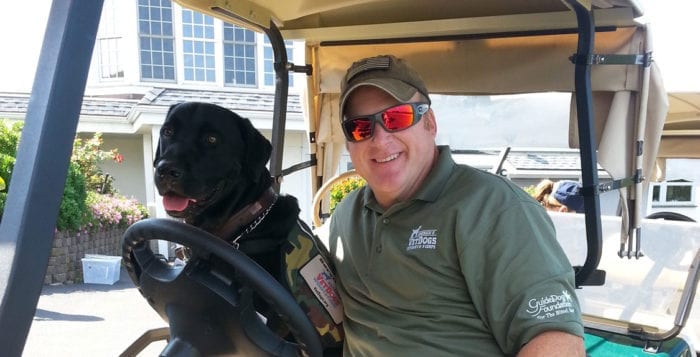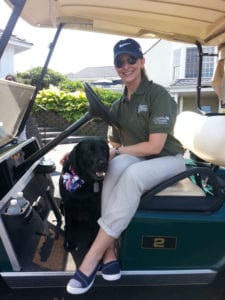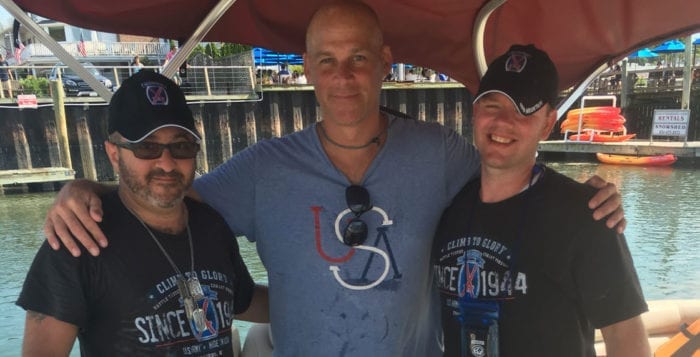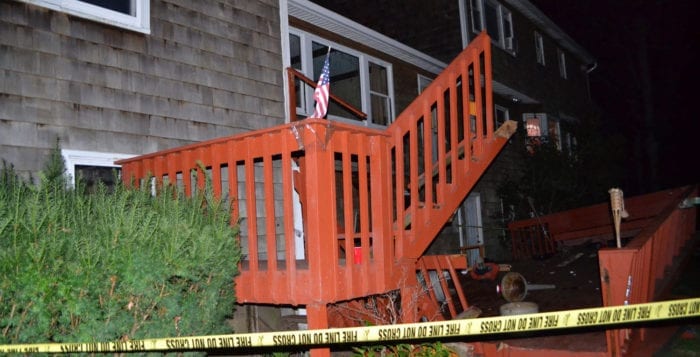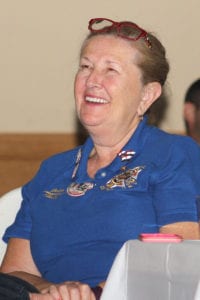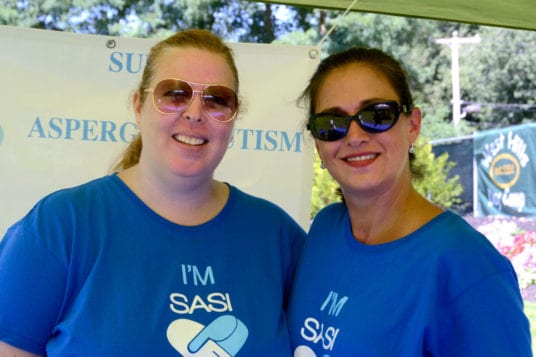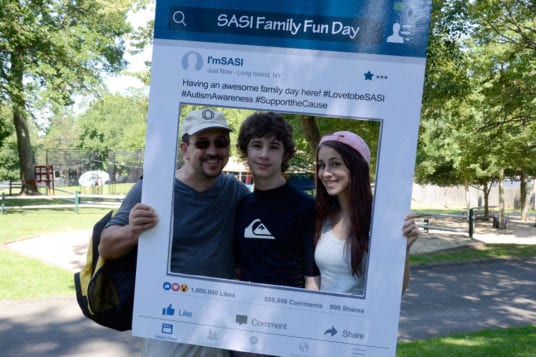By Rebecca Anzel
Melonie smiled as she watched her son Justin-Joseph, or J.J. for short, land several backflips on the trampolines at West Hills Day Camp in Huntington on Saturday. The activities at Suffolk Aspergers/Autism Support and Information’s first annual Family Fun Day — zip lines, face painting, sand art and a water slide, in addition to the trampoline park — were the perfect outlet for J.J.’s vast supply of energy.
J.J. is on the autism spectrum — Melonie is, too. “People look at us differently,” she said. “For me, it’s important for J.J. not to have that painful experience.”
SASI, a not-for-profit support group that provides special needs families with helpful resources, provides that sense of community Melonie wants for J.J. Founded in the living room of co-founder Stephanie Mendelson on Dec. 4 of last year, SASI has grown from 12 parents to over 700 families throughout Suffolk County and across the rest of Long Island in eight months.
Co-founder Priscilla Arena said Family Fun Day was meant to be an event for children on the autism spectrum to have carefree fun, and a way for families to bond.
“[I’m excited] for our kids to make friends — to see them smile. Here, they’re part of one community.”
—Priscilla Arena
“[I’m excited] for our kids to make friends — to see them smile,” she said, tearing up. “Here, they’re part of one community. They are the popular kids in SASI.”
Mendelson and Arena, both from Mount Sinai, have children on the autism spectrum. They found there was a lack of resources on Long Island for families and formed SASI as a support group to fill that void.
“Parents found themselves lost, confused, hopeless, alienated, isolated and alone,” Arena said. “SASI created an environment where they could come together and share their stories and experiences.”
To its members, SASI provides information about available resources, advocacy, financial and emotional support. On the last Friday of every month, the group hosts speakers at John T. Mather Memorial Hospital in Port Jefferson — so far, families have heard from a representative from Parent to Parent, a state planning attorney, a Medicaid broker and a parent advocate for education.
The group’s first speaker, special education advocate Danielle Brooks, was at Family Fun Day giving free advice to families. She said SASI is a special organization because it built a caring network for families in a short period of time. The event, she said, was a great opportunity for children to have fun in a safe environment.
SASI also hosts a birthday party club for its member’s children, who range in ages from kids just shy of 3 years old to adults in their late 20s. Arena said children on the autism spectrum have difficulty making friends, so sometimes there are not many others to invite to a child’s birthday party. The group is also working on a lending library, which will help members borrow books donated to the organization; a job skills program; life coach program and blue pages resource handbook, which would help parents find services they need across the island.
Legislator Sarah Anker (D-Mount Sinai) said she is “thrilled and excited” that Arena and Mendelson founded SASI. Instead of complaining about a lack of resources, she said, the SASI co-founders work hard to address issues.
“I think SASI will be able to address problems and advocate with a stronger, louder voice.”
—Sarah Anker
“I’m really supportive and beyond happy that Priscilla has taken this concern and made it into a centerpiece to gather around — creating this organization so people have a place to go for information and resources,” Anker said. “I think SASI will be able to address problems and advocate with a stronger, louder voice.”
The group has also gained the attention of U.S. Rep. Lee Zeldin (R-Shirley), who is sponsoring a bill to ensure Americans with disabilities have access to necessary health-care equipment.
“In Congress, one of my top priorities is ensuring that all Americans with disabilities have the resources they need to live independently and happily,” Zeldin wrote in a statement. “I thank the Suffolk Aspergers/Autism Support and Information group for their work in our community to help children and adults with disabilities.”
Family Fun Day was held at West Hills Day Camp in Huntington, a facility famous for its autism-friendly Gersh Academy. The facility donated the space for the event, which Anker said had about 800 attendees.
In addition to the attractions, the event also had refreshments from Crazy Crepes, Mr. Softee and Kona Ice. Families could purchase t-shirts or raffle tickets to win one of many donated baskets.
The event was just the first of many more to come, Arena said. “We’re new, but we’re just getting started.”
For Melonie, Family Fun Day was the perfect way to spend time with her son.
“It’s everything to see smiles on all the kids faces,” Melonie said. “They don’t get this a lot.”




